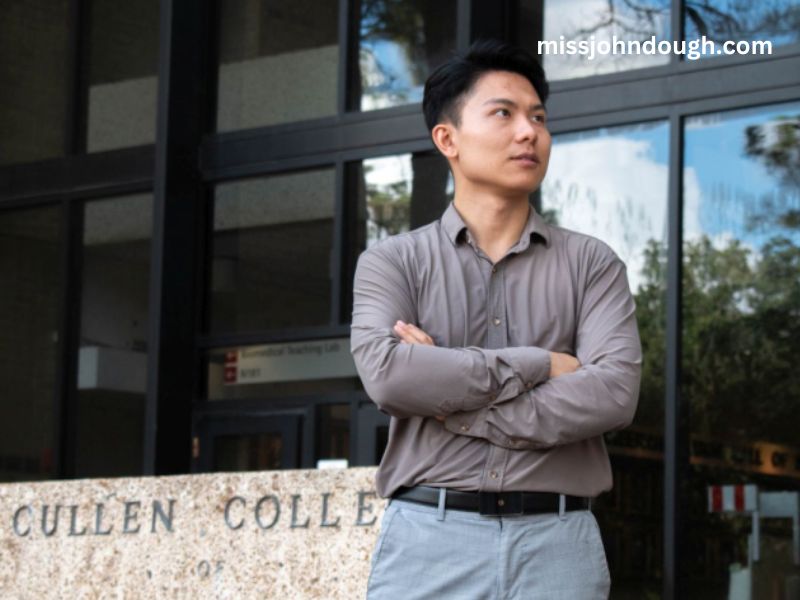Dr. Lei Fan is an esteemed Assistant Professor at the University of Houston, holding positions in both the Engineering Technology Department and the Department of Electrical and Computer Engineering. His academic journey began with a Bachelor of Science degree from Hefei University of Technology, followed by a Ph.D. from the University of Florida, where he was mentored by Dr. Yongpei Guan. Before transitioning into academia, Dr. Fan gained valuable industry experience in the electricity sector.
Exploring the Expertise of Dr. Lei Fan at the University of Houston
Dr. Lei Fan is a highly respected Assistant Professor at the University of Houston, specializing in power systems, optimization algorithms, and quantum computing. With a deep academic background, including a Ph.D. from the University of Florida, Dr. Fan has made significant contributions to the fields of electrical engineering and energy systems.
His research focuses on complex systems operations and planning, with applications in power systems, renewable energy, and electricity markets. His expertise in risk-averse optimization and mixed-integer linear/nonlinear programming has made him a key figure in advancing energy system operations. Moreover, Dr. Fan’s work in quantum computing, particularly optimization and machine learning, is helping to shape the future of energy technologies.
Dr. Lei Fan is also a dedicated educator, teaching courses on electrical machines, motor control systems, and power systems. His students appreciate his extensive industry experience and approachable teaching style, often praising him for making complex topics easier to understand.
As the leader of the Learning & Operations Research & Energy (LORE) Lab, Dr. Fan mentors students and encourages innovative research in the areas of optimization algorithms and quantum computing applications. His research has garnered recognition in top journals such as the IEEE Transactions on Power Systems, and his work continues to influence energy research worldwide.
Dr. Fan’s research interests are diverse and impactful, focusing on:
- Complex System Operations and Planning: This includes power systems, electricity markets, renewable energy systems, and network resource allocation.
- Optimization and Learning Algorithms: He specializes in risk-averse optimization and mixed-integer linear/nonlinear programming.
- Quantum Computing: Dr. Fan explores quantum optimization algorithms and quantum machine learning.
Dr. Fan’s Research and Academic Achievements
Dr. Fan’s academic contributions have had a lasting impact on energy research. Notable publications include:
- “A Data-Driven Model of Virtual Power Plants in Day-Ahead Unit Commitment” (IEEE Transactions on Power Systems, 2019)
- “Min-Max Regret Bidding Strategy for Thermal Generator Considering Price Uncertainty” (IEEE Transactions on Power Systems, 2014)
- “Distributionally Robust Unit Commitment with Flexible Generation Resources Considering Renewable Energy Uncertainty” (IEEE Transactions on Power Systems, 2022)
His work is well-cited, reflecting its relevance and importance in advancing energy systems and optimization techniques.
Dr. Lei Fan’s Vision for the Future of Energy and Quantum Computing
As a leading researcher in the field, Dr. Lei Fan is pioneering new approaches to optimize energy systems and integrate renewable energy sources into the grid. His work on quantum computing holds the potential to revolutionize optimization algorithms, offering new methods for solving complex problems in power system operations and beyond.
Dr. Fan is also actively involved in the professional community, serving as a guest editor for journals and organizing sessions at prominent conferences like IEEE Nano and IEEE NMDC. His contributions to the academic and professional communities ensure that his research and teaching continue to influence the next generation of engineers and researchers.
Conclusion: A Prominent Figure in Energy and Quantum Computing
Dr. Lei Fan’s expertise in power systems, optimization algorithms, and quantum computing, combined with his passion for teaching and research, makes him a valuable asset to the University of Houston and the broader engineering community. His work not only advances academic knowledge but also offers real-world solutions for the energy sector, contributing to a more sustainable and efficient future.


